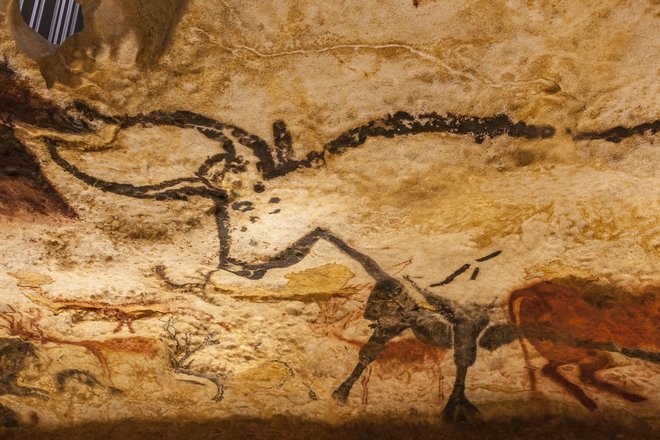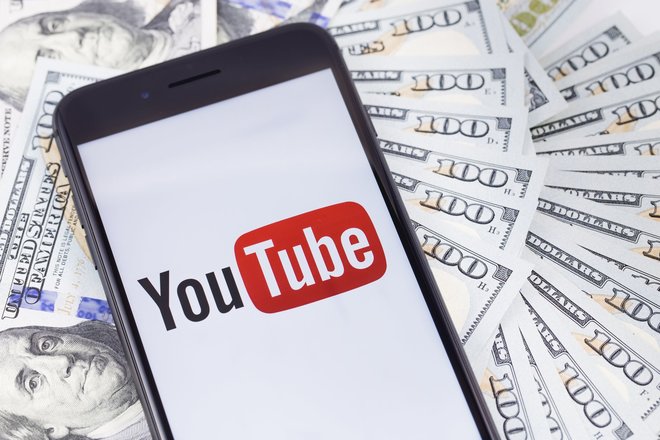In 2012, the French Département Dordogne was royally aggravated. A publishing company had published pictures of the Lacaux cave paintings and the department insisted on their copyright. Once the judge got over his laughing fit, he explained that 17,000 year-old paintings hardly fall under the copyright of a single municipality and shut the case. Today, online criminals adopt a similarly brazen approach in trying to make a quick buck based on judiciary shortcomings. The phenomenon is called copyfraud.

Uploading videos might earn you unwanted attention from rather unpleasant individuals. A friend of mine had video-recorded his vacation and used a public-domain song as background music rather than a contemporary pop song. Public-domain means no exclusive intellectual property rights apply. Shortly after the upload, he received a notification from YouTube telling him "Soundshare GM"* had filed a copyright claim because they owned the song. His objection was accepted and all was well again, or so he thought. A few days later, two new claims were filed by different parties.
They offered him to enable ads for his video the revenue from which would go to said parties as compensation. When he objected again (being a media professional and very sure of his case), both parties withdrew their claims and he was free to leave his video online and unchanged. Three fraud attempts, no consequences whatsoever! My friend would have to prove his innocence in court to hold the fraudsters responsible. Online, this form of legal harassment generally goes unpunished.
Initially considered isolated incidents by me, I quickly learned during my research that this approach has become a worthwhile business model for many. Here's how it works: Under "Content ID", YouTube offers a service that enables copyright owners to upload their songs. YouTube then checks newly uploaded songs against this database to detect copyright infringements. That means I can't just record my boss and add music from "The Lion King" or else Universal Music will be notified of my copyright infringement. Based on the number of views, they would then have the option to either have the video removed or ads enabled to collect the generated revenue. If the number of views is low, companies will sometimes be more forgiving.

What may sound reasonable is not without flaws in practice: Currently, it's far too easy to exploit this system. In the case of my friend, fraudsters had pretended to own copyright of public-domain work and, since YouTube doesn't verify these claims (enough), it's a perfect money-making scheme for fake copyright owners. Many users are scared, once their videos have been flagged by Content ID and quickly agree to hand over all ad-revenue to criminals. It's better not to receive any revenue than be sued, right? Fraudsters won't get rich from a single video but hundreds of videos can quickly generate huge profits of money. Insiders believe roughly a third of all ad-revenue is scooped by Content ID. The percentage of fraudsters is anybody's guess but the sum likely amounts in the billions.
Once again, it's ordinary users who are left out in the rain as their revenue goes to criminals. YouTube deny any responsibility and are unwilling to legally settle this issue instead pointing out their role as technology facilitator and keeper of sacred algorithms. Algorithms that are supposed to reliably filter out illicit content with the option for users to file complaints. Legislators are out of their depth, there's no other way to put it. They're lagging years behind current issues and generally lack the technical knowledge to achieve anything more than simple case-by-case decisions. Until fraudsters are properly prosecuted, nothing will change. It seems to me, considerable social pressure is required before sufficient action will be taken.
What I would like to know: Do you agree legislation should keep up with the pace of change both socially and technologically? Shouldn't citizens be protected not just against traditional but also modern crimes?
*Name altered




So, yet again it is those who are doing things right and above board that have to fend off those who set out to defraud.
And where copyright issues become even more entangled is that there are different laws concerning legal use of intellectual property in different jurisdictions/countries.
So a person may be in compliance in their home state but not aware that on a global medium such as the internet that using a particular song/image/text while legal at home is illegal to use in another place/s without purchasing a right of use licence.
Well, that is what I am led to believe anyway - maybe someone who knows more about global copyright matters can clarify or comment further.
"What may sound reasonable is not without flaws in practice: Currently, it's far to" last word s/b "too". Glenn Charles
Perfection is an unrealistic goal.
Lots of folks upload copyrighted videos and music to YouTube, Facebook, and the like every day.
Your scammers can only scam those who didn’t do their due diligence.
Danke Sven,
I seriously doubt that legislation will keep up with the crooks, con-men, minor and major criminals in our society including Google, (YoutubeGoogle) Facebook and other like miscreants.
This is plain and simple to understand because the 'bad' people outweigh the 'good' people of this world.
The 'bad' people are increasing in numbers much quicker than the 'good' people due to the monetary rewards for being honest is far less valuable.
I have dozens of stories similar to your friend. The theft of my online articles is appalling. Some are republished almost word for word while others make a few changes. All done without my name or a few dollars! When you've been hanging around the Internet for years friends catch others stealing my work. Google+ also catch people stealing and inform the author. I am talking about major news and economics websites not bothering to do a simple search of one to two lines from an article. Good teachers do it all the time.
Sven as far as YouTube goes I have a note that will make you laugh. I was hit with a copyright infringement for an interview I did with two editors from the Washington Post. I was told it was "the Washington Post" who filed the Copyright complaint. While chatting on the phone with one of the editors I sent a copy of it to him. YouTube made the thirty minute video disappear and reappear in under two hours. It took one phone call without filing an objection. A crime gang within the United States had been, and is likely, still doing it today.
With the billions being earned the owners of the online corporations would be wise to hire people to do the job. Technology is no match for a computer wizard and I am not talking about someone who plays video games. As if... Have a great weekend Sven
Eldon Wessels makes a good point. Governments should provide the communities they represent with a means by which they can reclaim the rights to private information and not allow a private enterprise like Facebook to monetise it for its own benefit.
Also, the whole idea of intellectual property rights has been corrupted. The original intent was to allow monopoly rights for a short period to encourage the sharing of useful knowledge. It now operates as a money grab by the powerful with the effect of limiting the sharing of such knowledge.
The world has gone mad,people ready to sue each other at the drop of a hat hoping to get rich on some old granny's ignorance on copyright when she put together a video of her grandson being christened with some music in the background ,then some a/h comes along wanting to sue her into the poor house and she is totally wrecked for she does not understand what she has done wrong.
never used to be this way, now its crooks trying to rob crooks and little old granny is in the middle .
Its mad I say mad! and the laws appear so far behind they are lost in the dust.
absolutely, the fraudsters should be held accountable and at the very least heavily fined.
Yes, Sven, I do agree that legislation should keep up with the pace of change both socially and technologically, and that citizens should be protected not just against traditional but also modern crimes.
But you and I both know that this is not going to happen.
However fast technology develops there are always criminals who will find new ways of using it for nefarious purposes. Legislation can only ever creep along (far) behind the emerging neo-crimes, doing its best (and failing) to keep up.
One of the biggest problems with legislation is the global nature of social media. When a phenomenon is as international as Youtube, Facebook and the like, how can national Governments legislate to protect their citizens against criminals who might be operating from the other side of the planet?
You make a valid point but, if these safeguards were not in place, not so honest--and sometimes totally innocent--people will infringe on others's copyrights. I'm a professional writer and it is always upsetting when I find my work stolen and used by others for financial gain.
Certainly the system could be fine-tuned but lets not tear it out until there is an adequate replacement.
How ironic...
Big companies have spent billions on protecting what is theirs, while other big companies (Google, Facebook, etc.) are stealing peoples private internet activity. And then selling said info for billions!
Someone, somewhere, owns the 'right' to a movie, song, photo, but I don't own my private life.